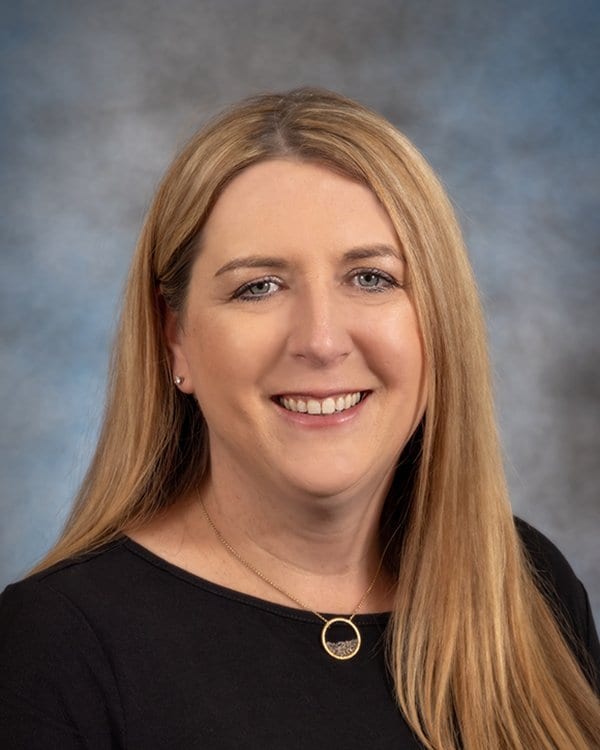Understanding Your Inherited Cancer Risk
Between five to 10 percent of cancers are thought to be hereditary. A hereditary cancer refers to a genetic change (mutation) that may be passed through the family that causes a higher than normal risk of cancer. In families with hereditary cancer, it is common for people to be diagnosed at an earlier age (often before age 50), have multiple primary cancers or bilateral cancer (both sides), and/or for multiple family members to have the same type of cancer. The most common hereditary cancers usually involve breast, ovarian, pancreatic, prostate, colon and endometrial (uterine) cancers, but almost any types of cancer can be hereditary.
The Cancer Genetics Clinic at MyMichigan Health offers information, personalized genetic counseling and coordination of genetic testing. The program’s goal is to identify people who may carry a genetic predisposition to developing cancer and provide useful information for them, their families and their health care team about their specific cancer risks and how to best manage them. Genetic counseling and testing are often very important first steps toward implementing vital screening and cancer prevention. If you have not been referred to the Cancer Genetics Clinic but are concerned about the possibility of a hereditary cancer gene in your family, please discuss your personal/family history with your primary care provider to determine if a referral is appropriate.
Meet our genetic counselors

Hannah Budnik, M.S., L.C.G.C. Hannah received her Master of Science, Genetic Counseling from Case Western Reserve University School of Medicine in Cleveland, Ohio. She says “Seeking genetic counseling can be an emotional roller coaster. I’m here to guide my patient through the process and help navigate those emotions.”

Rebecca MacFalda, M.S., L.C.G.C. Rebecca received her Master of Science, Medical Genetics from the University of Cincinnati/Children's Hospital Medical Center, Ohio. She strongly encourages patients to see a genetic counselor if there is concern about a possible hereditary cancer risk. "Genetic counseling provides patients with personalized information regarding hereditary cancers to help them make informed decisions regarding their genetic health."
What is a genetic counselor?
A genetic counselor is a health care provider who has graduate education in medical genetics through specialized genetic counseling programs. Genetic counselors help people understand complex genetic information related to their personal and family history. They have extensive knowledge about hereditary cancer and genetic testing. Genetic counselors can help you to make informed, personalized decisions about your health by providing you with information related to your genetic risk for cancer.
What happens at a genetic counseling appointment?
The genetic counselor will review your personal and family history information and help you understand more about hereditary cancers. This appointment includes a discussion about specific hereditary cancer that might be present in your family and their associated cancer risks, management recommendations and genetic testing options. If genetic testing is appropriate, your genetic counselor will provide information to help you make an informed choice about having the test, including potential benefits and limitations, insurance coverage/costs, possible test results and their implications for you and your family.
Patients will utilize in-person and virtual appointments to meet with the counselors.
Will my insurance pay for genetic testing?
Most insurers, including Medicare and Medicaid, do cover genetic testing for hereditary cancers when testing is appropriate for a person based on their personal or family history. It is often difficult to check with your insurance prior to your appointment since the most appropriate genetic tests for each patient are determined during the genetic counseling session. Before any testing is completed, the genetic testing lab often checks your insurance to determine if the testing is covered. This will be discussed in more detail by the genetic counselor at your appointment.
Is genetic counseling and/or testing right for me?
If you want to have genetic testing for hereditary cancer, this can usually be done at your appointment. However, having an appointment does not mean that you have to have genetic testing. Genetic counseling can also be helpful for people who aren’t sure if they want to have genetic testing. It is an opportunity to learn more about hereditary cancers and the benefits and limitations of genetic testing, which may help them decide what they would like to do. Sometimes, medical management changes may be suggested based on family history alone for people who decide not to have genetic testing.
What can I do to prepare for my appointment?
It is very helpful for the genetic counselor to have the most accurate information possible about your family’s medical history before your appointment. Spend some time talking to family members to find out as much as you can. The most important information about your family history would be:
- What type of cancer did your family member have?
- At what age were they first diagnosed?
- What is the current age or age of death for all relatives, including ones that did not have cancer? Many times, people do not know the exact age that someone had cancer or their current age. If you have a general idea of how old they were, that is also helpful. For example, did your aunt have breast cancer in her 30s-40s, or in her 70s-80s?
It can also be helpful to write down any questions or concerns you may have, so you can be sure to get the most out of your appointment.
Can a genetic test result be used against me?
There are state and federal laws in place to help prevent genetic discrimination. In 2008, Congress passed the Genetic Information Nondiscrimination Act (GINA), which aims to protect individuals from discrimination by employers and health insurance companies based on their genetic test results.
